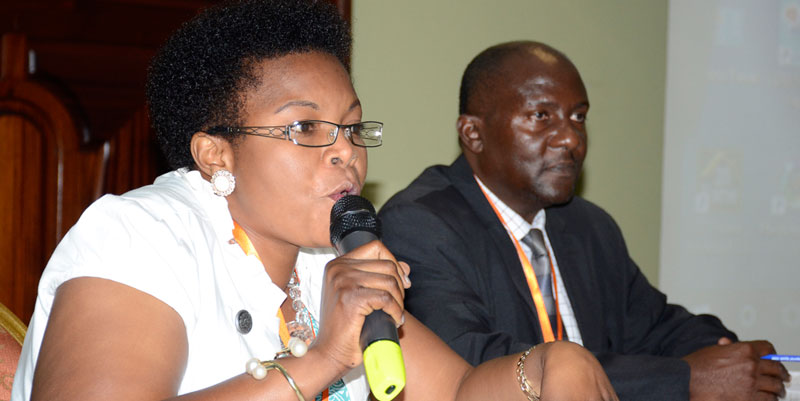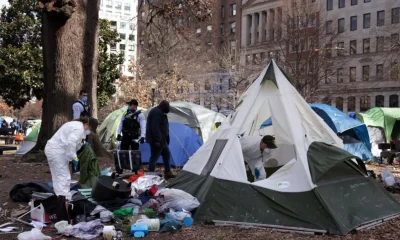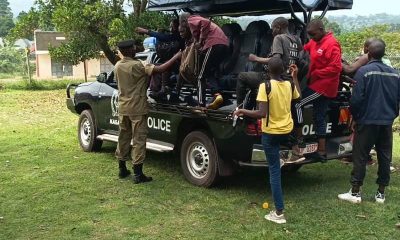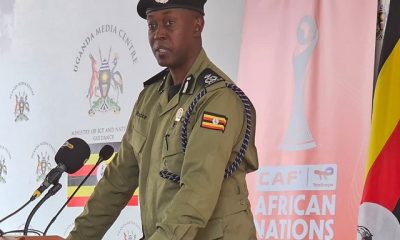human traffickingFeatures
Lands minister wants special land courts
The Minister of State for Lands, Persis Princess Namuganza, is urgently calling for the establishment of special courts in all Uganda’s regions to handle land cases. She says this will foster development and peace.
Speaking at the Joint Sector Review of Ministry of Lands, Housing and Urban Development last week, Namuganza said, “We have been advocating for these special courts for land and we are still appealing to the Government and our colleagues in Parliament to see that these are put in place. These courts are in Kenya, our neighbors, and they have solved this issue of land cases.”
The minister’s trumpet for the land courts has come at a time when land cases have logged in the general courts which has made many people to lose trust in courts leading them to settle their land issues with mob justice.
Issac Tumusiime, a resident of Wabigalo, in Mityana, whose brother’s land case has spent eight years without being settled, said, “When I hear people saying it’s court to settle the land cases, I just laugh at them if they still think like that, because courts just delay cases especially disputes between the poor and the rich.
In my brother’s case, the court is not caring about what loses we get if land is left unused yet he has invested in a lot of money in it, some of which are loans. I think the minister’s call has come in that right time when everybody is tired of land cases in theses general courts.”
According to the minister, when established in strategic places, these special land courts will reduce the backlog of cases in general courts like; murder, theft and the like, which will be settled faster. “Special land courts are the way to go. Rwanda has just established them, but for us, given the historical background, you find land cases pending for ten years and above holding up Government projects.
“Even individual development, these courts would be strategically placed in every district and/or areas of land wrangles. It will be very easy for them to visit the site before any ruling is done. Right now, the general courts do not have that capacity to visit these scenes due to financial constraints and some of them lack vehicles to move to see the truth,” she added.
Ugandan courts are experiencing a serious storm where land cases are increasing but the courts’ reactions towards settling them is very slow. A court official who preferred anonymity said, “Before they blame the court delays, the Police is also responsible for this because they are the first to handle such investigations and proper gathering of evidence over land conflicts with time.
At times the Police delay such files because they are not equipped with the necessary skills. As the minister advocates for the special land courts, there is also need for that special Police who are ready to do painstaking investigations in time.”
Police is very crucial in this matter because the court depends on its investigations to try cases, but at times they side with land grabbers, making it hard for the court to pass the ruling in time. There are inadequate investigation and cases take too long as the court is carrying its own investigations. This has made the society to lose trust in both the Police and courts.
The Head of Land Division in the High Court, Justice Andrew Bashaija, on 25th September this year, while at the on-going Land Commission of Inquiry, headed by Lady Justice Catherine Bamugemereire, said, “The cause of the high numbers of backlog land cases in different courts, is the delay of the Local Council elections, whose leadership would at least resolve some of the cases at earlier stage.
Some would probably end there, but all of them are now brought to the court because the people in Local Council leadership are no longer legitimate leaders, and most of them are the trouble causers of land wrangles.”
Putting aside Bashaija’s arguments, James Mweebe, a Civil Servant said, “Our court system is in a great distress. Courts take long time to dispose of countless cases; lawyers have land cases that drag on for more than five years, while others have gone on for more than a decade.
The High Court is responsible for this, because more often than not, judges and magistrates don’t turn up or simply adjourn sessions. At times, judicial officers are transferred before they finalize cases and the newly-posted judges take too long to study the unfinished files which make cases to take too long thus frustrating all programmes.”
Cases Statistics
According to the report by Case Backlog Reduction Committee (CBRC), which was released this year on 29th March, over 155,400 cases were backlogs, of which 14% cases are land cases.
However, according to Judge Richard Buteera, who chaired CBRC, attributed this increasing backlog to poor working attitudes and performance of judicial officials, limited powers of lower courts, inadequate number of judicial staff s and sick preparation of advocates. “There is a linkage in Judiciary that corruption in land courts has made Court magistrates and judges to forget their duties and appreciate the little salary they get, but delivering credible services to people, and this is why land cases take long.
However, maybe land special courts can help, but rich people have influenced the land rulings and this has not left out the Police,” Justus Habimana a local council leader in Kiboka said.
“Special land courts would be the best solution to settle land issues in time but where will the funding come from? The general court is also struggling with money; Public Prosecutors are striking; politics has taken over land issues all over Uganda; and, one of the major reason why many land issues don’t settle quickly id because of the infiltrations by the so-called rich people who steal land in broad daylight using the courts and Police,” said Joel Nakaggwa, from Luweero .
However, Namuganza defended the politicians, saying, “Politics is good; we are working for our people. I will not accept politics to have a seat in land issues and urban development, if the way to go is fair judgments. Let’s embrace it and not involve biases, if we want development, let’s put politics aside for the benefit of people.”
Comments



























